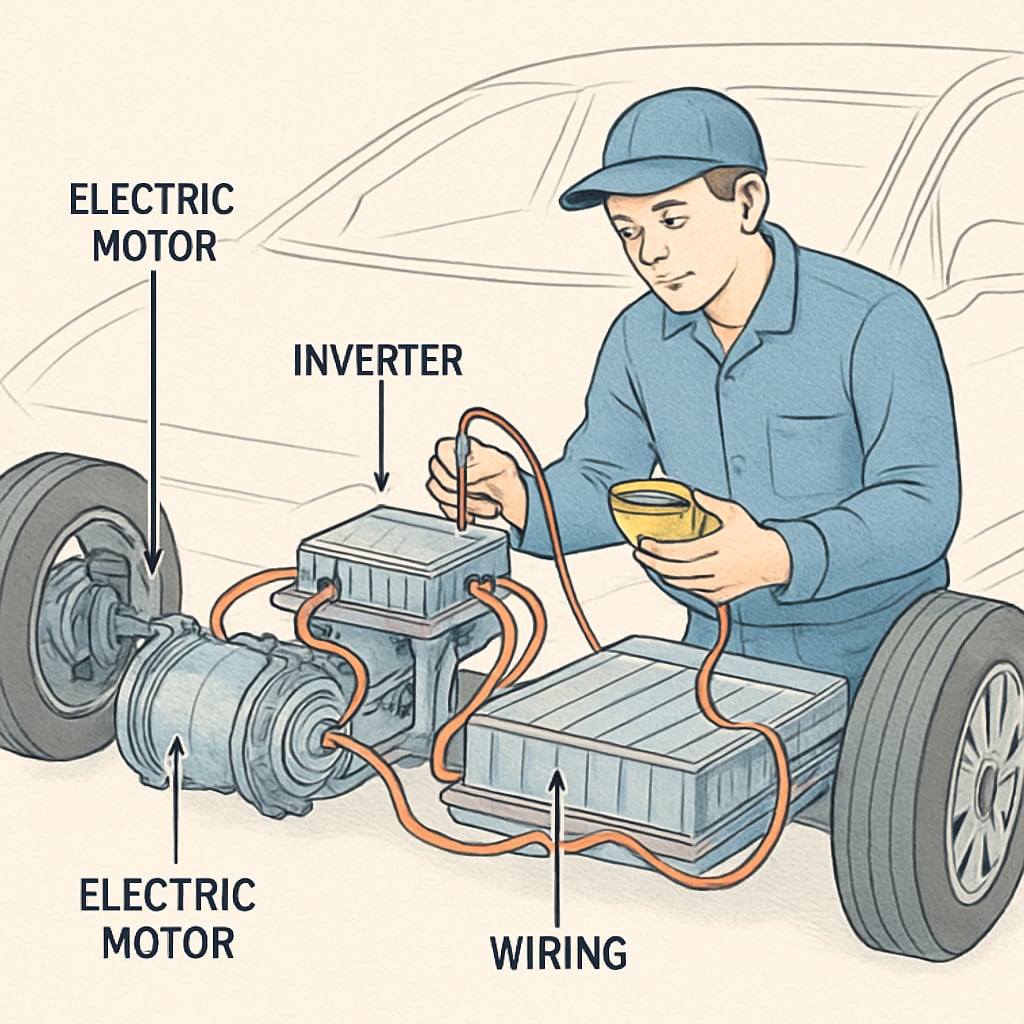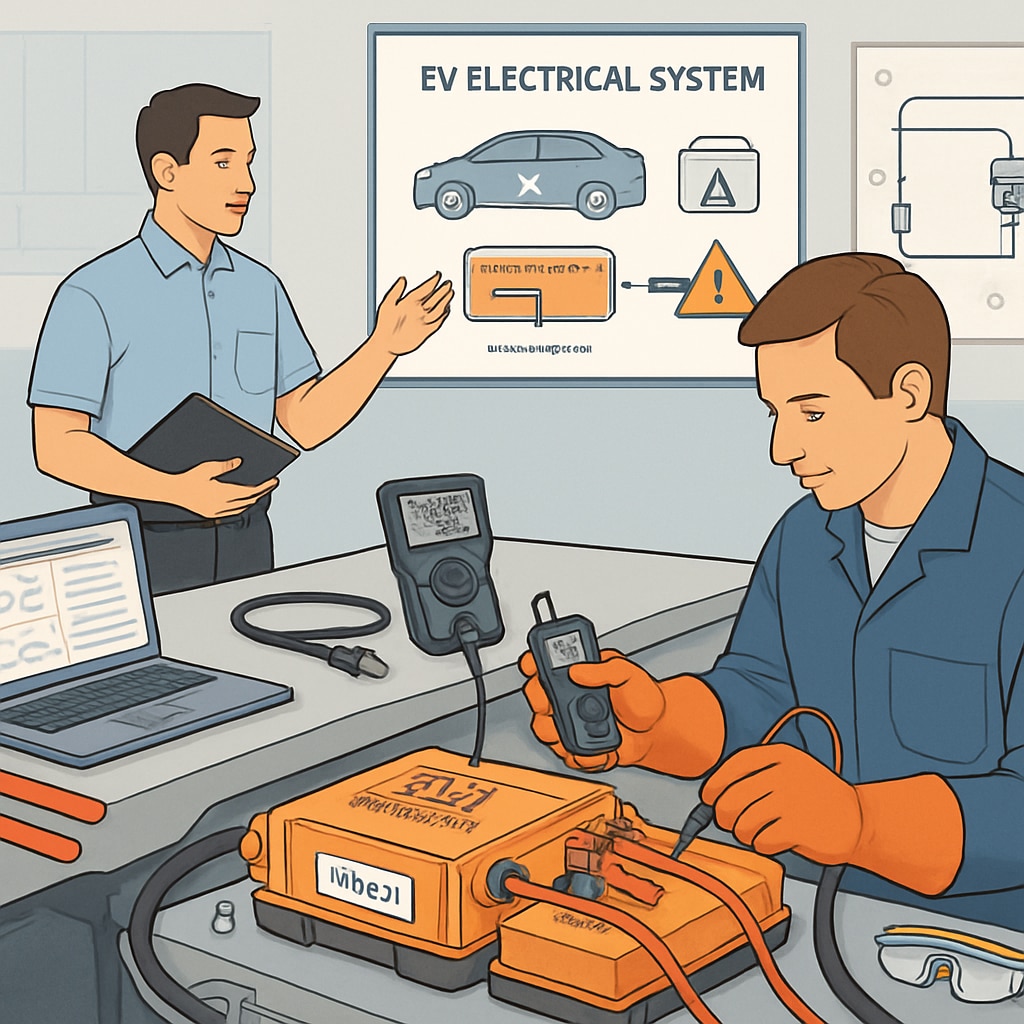As the automotive industry accelerates its transition towards electrification and smart technologies, the role of electrical knowledge in shaping career trajectories has become increasingly significant. Mastering electrical systems, components, and integration techniques is no longer optional—it is essential. This article delves into the strategic importance of electrical learning for professionals in the automotive sector and outlines actionable steps to remain competitive in this fast-evolving industry.
Why Electrical Knowledge Matters in the Automotive Industry
The automotive sector is undergoing a seismic transformation, led by the rise of electric vehicles (EVs) and autonomous driving systems. Traditional internal combustion engines are being replaced by electric powertrains, which are inherently more complex due to their reliance on advanced electrical systems. In addition, smart vehicles integrate sensors, communication systems, and artificial intelligence to enhance safety and efficiency.
Professionals with a strong foundation in electrical knowledge are better equipped to design, troubleshoot, and innovate these modern systems. For example, understanding how to integrate high-voltage batteries, inverters, and electric motors is critical for EV development. Similarly, expertise in electronics is crucial for implementing technologies like vehicle-to-everything (V2X) communication.

The Strategic Value of Electrical Learning for Career Growth
In an industry increasingly driven by technology, acquiring electrical expertise can significantly enhance career prospects. Here are a few reasons why:
- Increased Job Opportunities: The demand for engineers and technicians skilled in electrical systems is growing rapidly. Companies are actively seeking talent to work on EVs, charging infrastructure, and intelligent transportation systems.
- Higher Earning Potential: Specialized knowledge often translates to higher compensation. Professionals with expertise in electrical engineering are typically rewarded for their technical contributions.
- Future-Proof Skills: As the automotive industry continues to innovate, electrical knowledge ensures long-term career resilience by aligning with emerging trends.
For example, according to a Britannica article on electricity, understanding the principles of electrical energy is foundational for multiple applications, including vehicle power systems.
How to Build Electrical Expertise for Automotive Careers
Becoming proficient in electrical systems requires a combination of education, hands-on experience, and continuous learning. Here’s how you can develop these skills:
- Pursue Relevant Education: Enroll in courses focused on electrical engineering, automotive electronics, or related fields. Many universities and online platforms offer specialized programs tailored to the automotive sector.
- Gain Practical Experience: Internships and apprenticeships provide valuable hands-on experience. Consider roles in EV manufacturing, battery technology, or vehicle electronics to deepen your understanding.
- Stay Updated: Read industry publications, attend automotive expos, and participate in webinars to stay current with the latest technological advancements.
- Obtain Certifications: Certifications in areas like electric vehicle technology or advanced driver-assistance systems (ADAS) can enhance your credentials.
For additional resources, explore the Electric Vehicle page on Wikipedia, which provides insights into the evolution and components of EVs.

Looking Ahead: The Future of Automotive Careers
As electrification and automation reshape the automotive sector, the need for professionals skilled in electrical systems will only grow. From designing efficient battery management systems to developing algorithms for autonomous vehicles, the opportunities are vast. By investing in electrical learning now, you position yourself to thrive in an industry that is not only evolving but also redefining transportation as we know it.
In conclusion, electrical knowledge is no longer a niche skill—it is the backbone of the automotive industry’s future. Whether you are an engineer, technician, or aspiring innovator, prioritizing electrical learning can unlock new career paths and ensure your relevance in this dynamic industry.
Readability guidance: This article uses concise paragraphs and lists to enhance readability. Transition words are included to ensure logical flow, and technical jargon is explained for accessibility. Images are placed strategically to complement the content and provide visual context.


